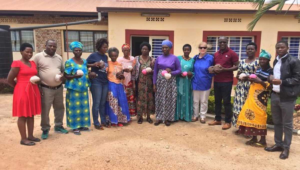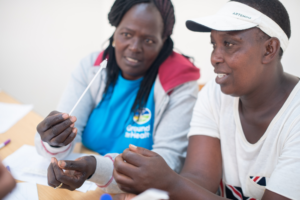Armed with slideshows and facts, thousands of Indian doctors are leading a drive to eliminate cervical cancer, transforming routine check-ups into life-saving conversations about HPV vaccination, in a country where one woman dies every eight minutes from this preventable disease.

In a nationwide effort to eliminate cervical cancer, India has launched an ambitious initiative to train tens of thousands of doctors to promote HPV vaccination. The campaign comes at a crucial moment as India begins manufacturing its own HPV vaccine, with the government expected to include it in the national vaccination program by early 2026.
One in five cervical cancer cases worldwide occur in India, with the human papillomavirus (HPV) causing 95% of these cases. Despite the vaccine being available privately since 2008, uptake has been low due to high costs and lingering mistrust from past vaccine trials.

“Every seven to eight minutes, a lady in India is dying due to cervical cancer, when it is preventable,” Dr. Priya Ganeshkumar, the gynecologist and cancer specialist leading the project within the Federation of Obstetric and Gynaecological Societies of India (FOGSI), told the Guardian.
The training program began last year with 11,000 FOGSI members receiving virtual training. About 100 of these trainees have become part of the National HPV Faculty and will each train 500 general physicians over the next six months. The physicians will then approach their communities with presentations in local languages, ask mothers about vaccinating their daughters during medical appointments, and visit schools and community centers to counter vaccine misinformation.
According to WHO data, cervical cancer is the fourth most common cancer in women globally, with around 660,000 new cases and 350,000 deaths recorded in 2022. Low- and middle-income countries bear the heaviest burden, with 94% of cervical cancer deaths occurring in these regions.
The HPV vaccine is most effective when given to girls aged 9-14 years, before they become sexually active. Cervical cancer typically takes 15-20 years to develop from abnormal cells, providing a significant window for prevention through vaccination and screening.

Sutapa Biswas, co-founder of the Cancer Foundation of India, noted that the COVID-19 pandemic has unexpectedly aided their efforts. “Now, when we are talking in the community, we can explain there’s a virus causing cervical cancer – that’s why we are here, we have a vaccine,” she told the Guardian.
The training also equips doctors to integrate vaccination discussions into routine care. “We have a lot of scope for talking about this vaccine,” Dr. Ganeshkumar explained to the Guardian. Gynecologists often ask parents about vaccination when their daughters reach puberty or during subsequent pregnancies.
Before this initiative, many non-specialist doctors “didn’t even know that a cancer could be eliminated and vaccination could be such a gamechanger,” Biswas told the Guardian.
The program receives about a quarter of its funding from Cancer Research UK, supporting global efforts toward “a future where almost nobody develops cervical cancer.”
Read the full article by Kat Lay in The Guardian: India trains thousands of medics to promote vaccine in huge push to end cervical cancer
Information about cervical cancer from the WHO: Cervical cancer
Watch this TEDx video about cervical cancer in India:
Related Articles

“Then God sent Mr Balinda” – the Rwandan Nurse Supporting Cervical Cancer Patients
For patients, getting through cancer treatment is a trial. One nurse’s efforts to provide both material and emotional support has made a major difference. From VaccinesWork.

Letter from Kenya: We Screened a Record Number of Women in One Week!
Grounds for Health’s July 2024 campaign in Kenya screened over 1,800 women for HPV in one week, showcasing scalable cervical cancer prevention in low-resource settings. Using self-sampling and community-led efforts, the initiative achieved high screening and treatment rates, demonstrating the power of innovative health outreach.

How One Father’s Love Is Helping Shield Nigeria’s Daughters from Cervical Cancer
The tragic loss of his wife to cervical cancer ignited Borno state immunisation officer Maina Modu’s determination to protect not only his daughters, but all young girls in the state from the vaccine-preventable disease. From VaccinesWork.
